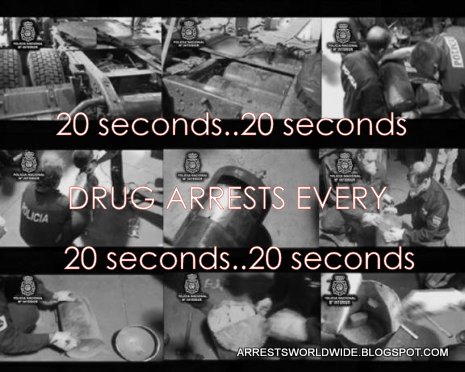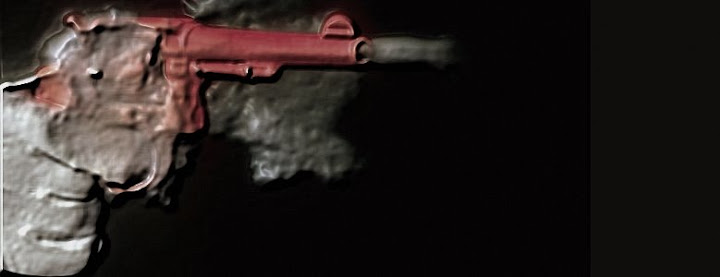A dangerous prisoner charged with murder is on the run after three masked men ambushed a prison van. Advertisement >> John Anslow, 31, escaped following the attack on the prison van taking three inmates from Hewell prison in Redditch to Stafford Crown Court at about 8.20am. The van was stopped by three men wearing balaclavas who jumped out of a Volkswagen Scirocco. Two of the men were wielding sledgehammers and smashed the windscreen and the driver’s window of the GEO Amey prison escort van. The driver was also punched and reportedly threatened with a blade before the men drove off in the Scriocco. It is believed they switched to a silver Mercedes after stopping in Stoney Lane. The two other prisoners being carried in the van did not escape. West Mercia Police have now warned that Anslow, from Tipton, is considered "dangerous". He was one of five men charged with the murder of Richard Deakin, who was shot dead in Chasetown, Staffordshire, in 2010. The skip-hire boss was gunned down as he slept in his home in Meadway Street while his partner had taken their two daughters to school. CCTV images of the gunman calmly walking through their garden gate were screened on TV show, Crimewatch. Anslow was charged with murder alongside Mr Deakin’s brother-in-law Leigh Astbury. Hewell prison houses more than 1,400 inmates across three blocks holding category B, C and D prisoners. The incident is being investigated by officers from West Mercia Police. Anslow is described as white, 5ft 10ins tall, and of medium build with short brown hair. Police block the roads leading to Hewell Grange Prison in Redditch, after a prisoner escaped when a van taking inmates to court was ambushed A dangerous prisoner charged with murder is on the run after three masked men ambushed a prison van. John Anslow, 31, escaped following the attack on the prison van taking three inmates from Hewell prison in Redditch to Stafford Crown Court at about 8.20am. The van was stopped by three men wearing balaclavas who jumped out of a Volkswagen Scirocco. Two of the men were wielding sledgehammers and smashed the windscreen and the driver’s window of the GEO Amey prison escort van. The driver was also punched and reportedly threatened with a blade before the men drove off in the Scriocco. It is believed they switched to a silver Mercedes after stopping in Stoney Lane. The two other prisoners being carried in the van did not escape. West Mercia Police have now warned that Anslow, from Tipton, is considered "dangerous". He was one of five men charged with the murder of Richard Deakin, who was shot dead in Chasetown, Staffordshire, in 2010. The skip-hire boss was gunned down as he slept in his home in Meadway Street while his partner had taken their two daughters to school. CCTV images of the gunman calmly walking through their garden gate were screened on TV show, Crimewatch. Anslow was charged with murder alongside Mr Deakin’s brother-in-law Leigh Astbury. Hewell prison houses more than 1,400 inmates across three blocks holding category B, C and D prisoners. The incident is being investigated by officers from West Mercia Police. Anslow is described as white, 5ft 10ins tall, and of medium build with short brown hair. Detective Inspector Jon Marsden, of West Mercia Police, said: "Three men wearing balaclavas, two of whom were carrying sledgehammers, got out of a silver Volkswagen Scirocco, and smashed the windscreen and driver's window of the GEO Amey prison escort van. "The van driver was punched but no serious injuries were sustained by escort staff. There were two other prisoners in the van at the time, neither of whom were released." He went on: "Anslow has recently been charged with murder and is considered dangerous. "We are working closely with our colleagues from West Midlands and Staffordshire Police forces and a large number of officers from all three forces are involved in the search for him. "However we would urge any members of the public who sees him not to approach him directly, but to contact police immediately on 999." Last July, the trial of an alleged criminal gang which used guns and grenades to intimidate its rivals collapsed after two defendants escaped from a prison van on the edge of Manchester city centre. The gang made off and an international search was launched for the two men, with ports and airports in the UK monitored. And in September 2006, a "violent and dangerous" criminal escaped from a prison van in Redditch after being helped by two masked men armed with with a gun. Two men wearing balaclavas, or with their faces covered, used a firearm to threaten staff in a security van taking the prisoner back to Blakenhurst prison following an appearance before magistrates in Redditch. Detective Inspector Jon Marsden, of West Mercia Police, said: "Three men wearing balaclavas, two of whom were carrying sledgehammers, got out of a silver Volkswagen Scirocco, and smashed the windscreen and driver's window of the GEO Amey prison escort van. "The van driver was punched but no serious injuries were sustained by escort staff. There were two other prisoners in the van at the time, neither of whom were released." He went on: "Anslow has recently been charged with murder and is considered dangerous. "We are working closely with our colleagues from West Midlands and Staffordshire Police forces and a large number of officers from all three forces are involved in the search for him. "However we would urge any members of the public who sees him not to approach him directly, but to contact police immediately on 999." Last July, the trial of an alleged criminal gang which used guns and grenades to intimidate its rivals collapsed after two defendants escaped from a prison van on the edge of Manchester city centre. The gang made off and an international search was launched for the two men, with ports and airports in the UK monitored. And in September 2006, a "violent and dangerous" criminal escaped from a prison van in Redditch after being helped by two masked men armed with with a gun. Two men wearing balaclavas, or with their faces covered, used a firearm to threaten staff in a security van taking the prisoner back to Blakenhurst prison following an appearance before magistrates in Redditch.






 16:49
16:49
 El NACHO
El NACHO


